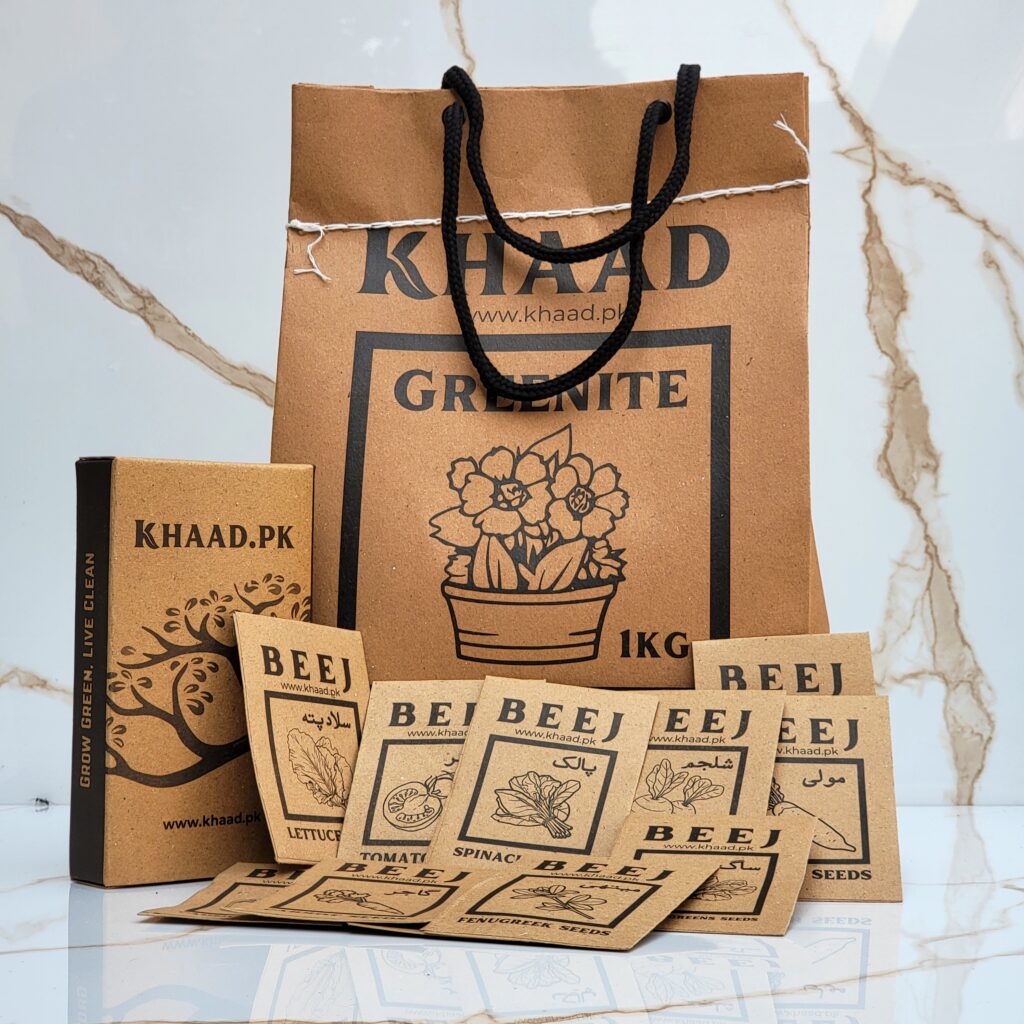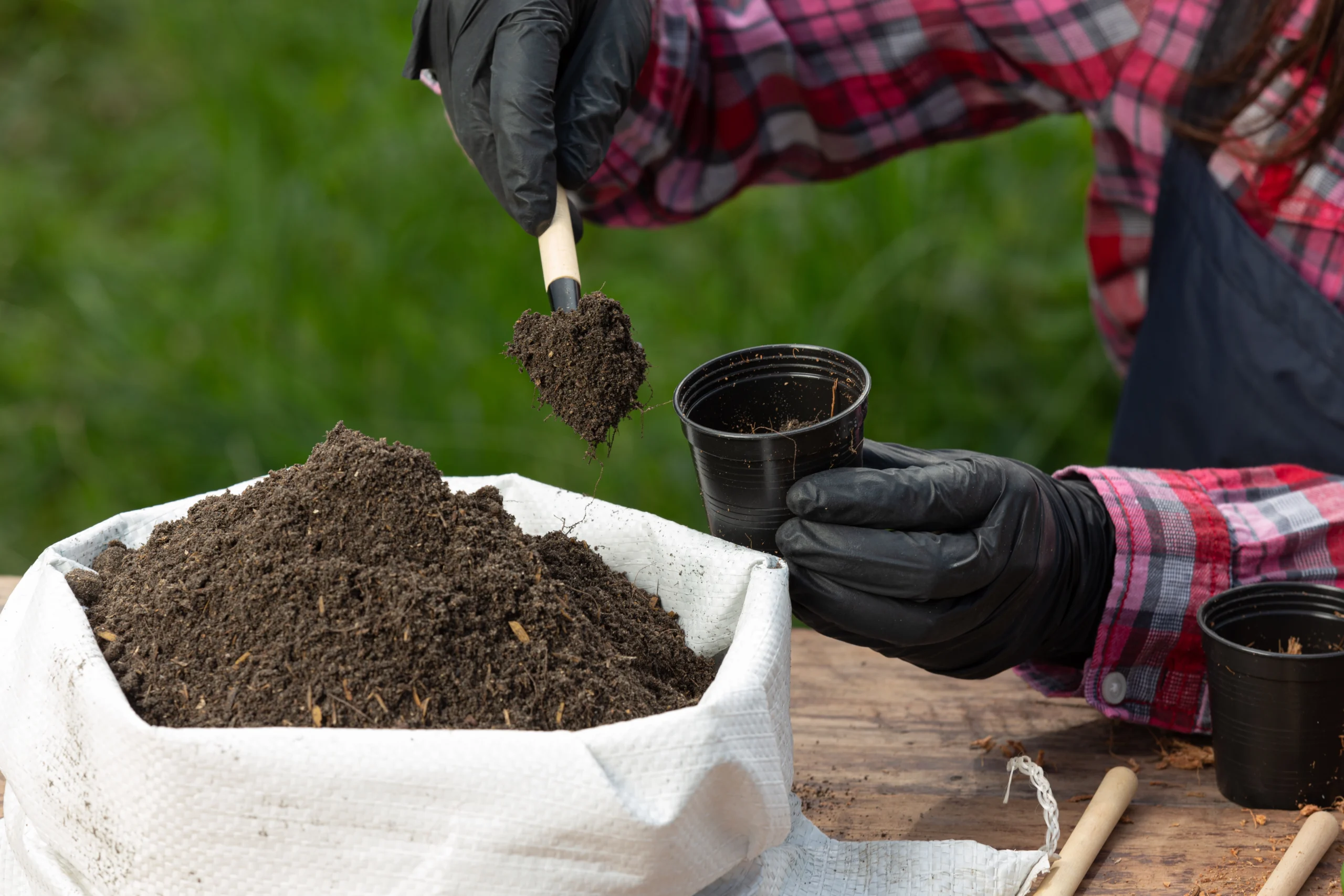Composting for Soil Improvement: A Guide for Gardeners
Composting is one of the most efficient and sustainable methods to create healthy soil for your garden. Recycling organic wastes into nutrient-rich material can improve soil structure, fertility, and moisture retention. Here is a step-by-step guide on how Pakistani gardeners can start with composting for better soil improvement.
1. What is Composting?
Composting is the process of breaking down organic materials, such as kitchen scraps, yard waste, and plant residues, into humus, which enriches the soil. This natural process can help you reduce waste while boosting the health of your garden.
2. Why Composting is Important for Pakistani Gardens
- Improves Soil Fertility: Compost adds essential nutrients to the soil, ensuring healthy plant growth.It helps improve the structure of soil through better aeration and water holding capacity in the diverse climatic regions of Pakistan.
- Eco-friendly: Composting decreases dependence on chemical fertilizers, thus harmful to the environment.
- Reducing Waste: You minimize waste going into landfills through composting of kitchen as well as garden waste 3. How to Start Composting in Pakistan
- Choose a Suitable Location: Find a shady, well-ventilated spot in your garden where the compost pile will not be disturbed.
- Select a Composting Container or Bin: You can use a composting bin or create a compost heap. In Pakistan’s warm climate, using a bin will help regulate temperature and moisture levels.
- Gather Composting Materials: Composting requires a mix of green materials (nitrogen-rich) and brown materials (carbon-rich).
- Green materials: Kitchen scraps (fruit and vegetable peels, coffee grounds, tea bags), grass clippings, green leaves.
- Brown materials: Dry leaves, straw, cardboard, sawdust, shredded paper.
- Maintain the Right Balance: The ideal composting ratio is about 3 parts brown materials to 1 part green materials. This balance ensures the right carbon-to-nitrogen ratio for decomposition.
3. Steps to Create Compost

Layering: Begin by layering the brown materials at the bottom followed by a layer of green materials. Keep alternating layers.
Turning the Pile: Aerating is the key to fast decomposition. Turn the pile with a pitchfork or shovel every few weeks to speed up the process.
Moisture: The compost pile should be moist but not too wet. In Pakistan’s hot climate, you may need to water the pile occasionally to keep it damp.
Patience: Composting takes time, generally 2-3 months, depending on weather conditions and the materials used. When the compost turns dark and crumbly, it’s ready to use.
4. Common Composting Problems and Solutions
Bad Odor: This usually occurs when the compost pile is too wet or has too many green materials. Add more brown materials and ensure the pile is well-ventilated.
Slow Decomposition: If your compost isn’t breaking down quickly, try turning the pile more often or add more green materials to increase nitrogen content.
Pests: Avoid adding meat, dairy, or oily foods to your compost pile, as these attract pests. Stick to plant-based materials.
5. Using Compost in Your Garden
Once your compost is ready, you can mix it into your garden soil to improve its texture, drainage, and nutrient content. Compost works well in vegetable gardens, flower beds, and around trees and shrubs.
For Vegetable Gardens: Mix compost into the soil before planting. It will give nutrients needed for healthy growth.
For Flower and Shrub Beds: Add a layer of compost over the soil and lightly till it into the soil for greater fertility.

6. Advantages of Composting for Pakistani Gardeners
Economical: The use of chemical fertilizers decreases through composting, thereby saving the expense in the long run.
Environmental Impact: Composting reduces waste in the environment and promotes sustainable garden practices.
Better Plant Development: Plants grow better in such nutrient-rich, aerated soils, leading to healthier gardens with higher productivity.
Composting is one of the easiest and most effective ways to boost the health of your garden soil in Pakistan. It enhances your garden’s productivity and helps contribute to a healthier, more sustainable environment. Start small, experiment with different materials, and enjoy the long-term benefits of composting in your garden.
Tags :

I like the helpful information you provide in your articles.
I’ll bookmark your blog and check again here regularly.
I’m quite sure I will learn a lot of new stuff right here!
Good luck for the next!
Look at my webpage: zero text